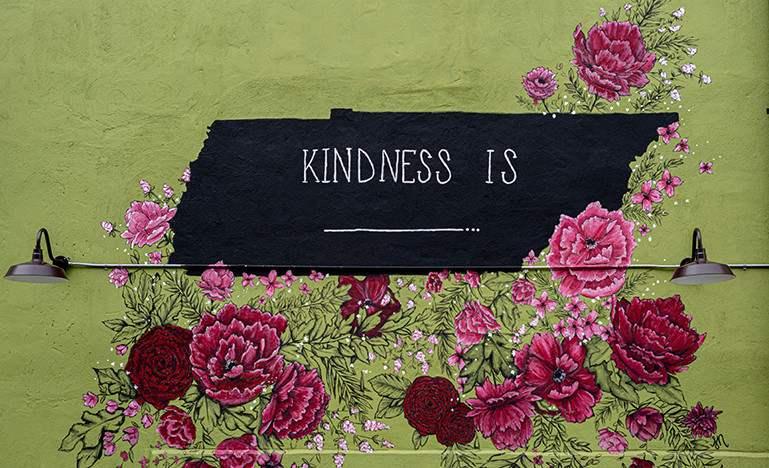Govern Yourself Accordingly
For new lawyers pulled toward accomplishment, the work of building character is just as important

When starting your legal career, there is an immediate pull toward accomplishment. New lawyers are taught to build their experience, expand their networks, meet performance targets, and advance their standing. These goals are valid and help establish a foothold in a demanding and competitive field. But as lawyers focus on building careers, there is another dimension that deserves attention: the work of building character. Law, at its core, is about responsibility. It is about representing others, upholding rules, serving institutions, and sometimes influencing outcomes that matter beyond the individual. For this reason, how a lawyer conducts themself is as important as what they know. Exercising good judgement and self-discipline is part of the job, every day.
Many are familiar with the concept of résumé virtues versus eulogy ones. The first category includes experiences, credentials, accomplishments, and measurable outcomes. They are the qualities that appear in biographies and performance evaluations, and they tend to be rewarded in professional settings. The second category includes traits like integrity, humility, courage, and compassion. These are the qualities people tend to speak about when reflecting on someone’s impact, especially outside of a professional context. They show up in how a person treats others, how they handle difficult moments, and how they hold themselves accountable. They are developed through self-reflection and the choices a person makes over time.
The legal profession prioritizes productivity and performance, but the question of character is shaped early on, often in moments that seem minor at the time. Deciding whether to take responsibility for a mistake, whether to speak up about a concern, whether to show grace to someone who is struggling— these are the kinds of decisions that shape character and professional identity. The process is rarely obvious as it happens, but self-governance begins with an honest understanding of one’s strengths, limitations, motivations, and values. Eulogy virtues require character, which in turn requires cultivation, and these are earned through attention, intention, and accountability.
Looking back on my own early years in practice, I can recall moments when I did not handle things as well as I would today. That is not uncommon. What felt manageable at the time later revealed itself as more complicated. I learned, sometimes uncomfortably, that being technically correct is not always the same as exercising good judgement. These moments stay with you, not because they are career-defining on paper, but because they marked a shift in awareness. They become part of one’s understanding of what it means to act with care, to reflect before reacting, and to take responsibility for one’s influence.
Now, in a different phase of my career, I evaluate others for leadership roles. When I speak with references, the focus is rarely on brilliance or achievements. Instead, people tend to recall moments of character. They describe how someone treated colleagues with kindness during a crisis, or how they demonstrated humility under intense pressure. They recount instances when a person’s actions aligned with their words and refer to examples of behaviour that went above and beyond what was required. What surfaces most often are not résumé virtues, but whether a person has shown the kind of character that earns trust over time.
Relatedly, and often shared with discretion, are observations of when character is lacking. These include the cautious reflections of someone who may be talented and accomplished but may not exercise good judgement. Perhaps an individual who has been known to be dismissive allows frustration to drive their actions or demonstrates public displays of virtue that do not align with how they behave in private. These observations are not necessarily framed as criticisms but show up as a long pause before answering, an endorsement qualified by caveats, or a tone that hints at unease. Over time, these impressions accumulate and form part of the unspoken calculus others use when deciding whom to trust, whom to follow, and who is genuinely fit to lead.
This is why character and self-governance matter: it is constantly being observed and, eventually, becomes a part of someone’s reputation. Has this person allowed their emotions to override their judgement in tense situations? Do they speak about collegiality but behave poorly when challenged? Do they listen, or become defensive and controlling, when conflicts arise? Have they shown accountability when things go wrong, or looked for someone else to blame? These are the cumulative signals that shape how others experience a person.
There will be situations that are not clearly addressed by any rule or precedent. There will be uncertainty, pressure, and conflict. In those moments, a lawyer relies not only on legal knowledge, but the character they have formed through a long practice of learning from mistakes and asking difficult questions. Am I the kind of lawyer I want to be? Am I making decisions I will be proud of ten years from now? Am I acting in a way that reflects the best of what the profession can offer? Character building is the kind of work that does not always show immediate results but depends on individuals who are willing to lead themselves first.
The people who succeed are the ones whose decisions align with their values, whose reputations are steady, and whose names invite confidence when mentioned in rooms they are not in. That kind of trust is built slowly. So, as you move through the early stages of your legal journey, be ambitious. Learn, contribute, and build your résumé. But also take stock of who you are becoming as you do. Because the version of yourself that shows up when things are uncertain, when people are difficult, or when recognition is unlikely is the version that will be remembered and the one you will live with the longest.





